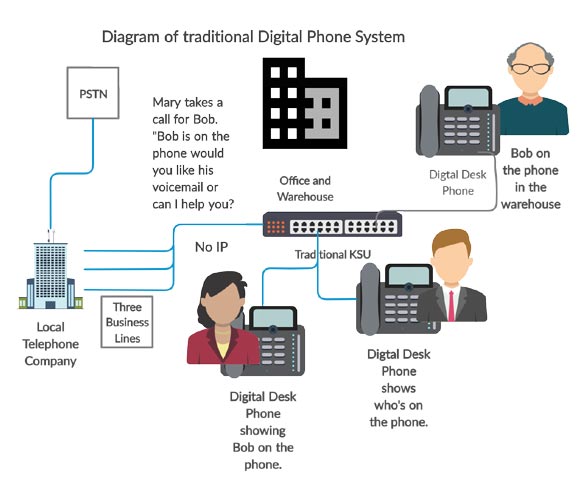The correct telephone system for small and medium-sized enterprises (SMEs) improves and simplifies the working life for all employees. The market has many different configurations to offer. However, many companies are still using traditional telephone systems believing there is no good reason to switch. After direct contact, personal conversation is the most important communication channel. You, therefore, need a good telephone system for an efficient, professional, and uncomplicated conversation. Depending on their size and structure, firms and companies have very different requirements.
What is a telephone system for SMEs?
Medium-sized businesses mostly do not have the financial plan or the infrastructure for such a telephone system. An SMB telephone system consists of a series of office telephones that are linked together. They also have advanced features such as call handling, call forwarding, conference calling, and voicemail inboxes. Some telephone systems for SMEs only consist of a few office telephones and a PBX system with a certain number of external lines.
With a good communication system, you can also use complex devices and thus adapt everything to your company’s growth – this is how you achieve your business goals.
Also, you can prefer Local Access Numbers for your business to grow your business to the next level.
· ISDN telephone systems: these telephone systems are characterized by failure safety and good voice quality. Depending on the type of connection, these telecommunications systems offer a D-channel for setting up / disconnecting the connection and 2 to 30 lines (B-channels) on which phone calls, faxes, and e-mails can be made in parallel. To use an ISDN telephone system, you need an ISDN connection, a network termination device (NTBA or NTPM), and ISDN-capable end devices. These telephone systems are mainly suitable for the private sector or small and medium-sized companies such as medical practices and law firms.
· VOIP telephone systems: It is one of the best business phone systems. These telephone systems allow the calls to be made by using the Internet. The IP telephone is connected directly to the local network (LAN) via a router (network device) or switch (distributor). This saves you telephone, administration, and infrastructure costs.
· Hybrid telephone systems: These are combined with digital, analogue, and IP telephony. Therefore, these PBXs can be connected to the classic ISDN telephone network and used simultaneously via the IP protocol for both internal and external communication. They have a good voice quality and offer numerous functions. Hybrid telephone systems are the optimal solution for small and medium-sized companies.
· Virtual telephone systems: these telephone systems are the modern alternative to classic telephone systems. They are operated in the data centre of a specialized provider and made available via the Internet. All you need is a DSL or ADSL connection and IP telephones. This results in the following advantages: Hardware, installation, and maintenance are no longer necessary; new extensions can be set up quickly and easily via the web interface. Virtual telephone systems are mainly used in companies with multiple locations, flexible with the number of extensions, and employ field staff.
Conclusion: Companies are now switching to VoIP and cloud-based telephone systems to benefit from this ubiquitous nature and versatility.







